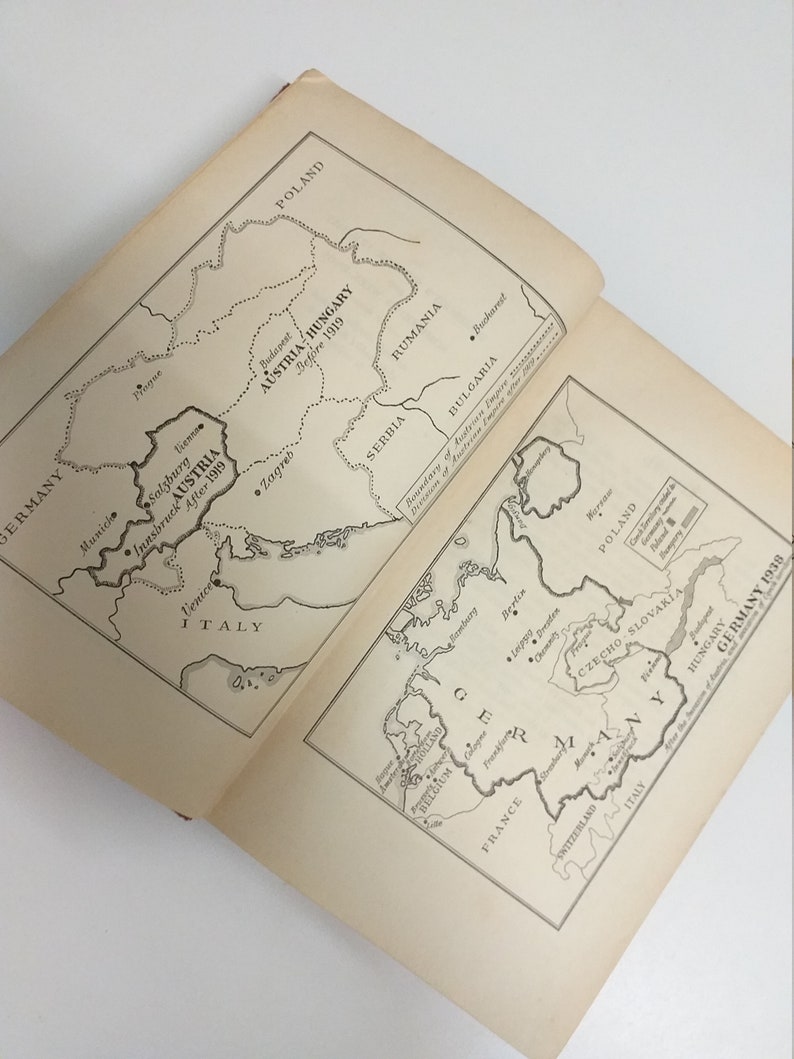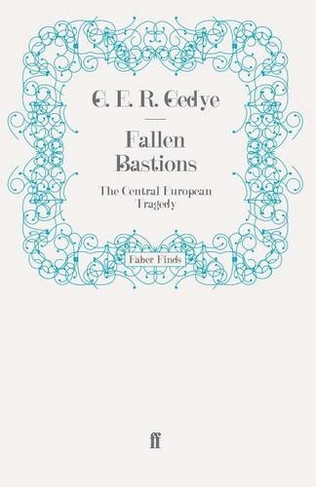

On the strength of his fluency in German and French, which he had studied at school and night cl*es, he was promoted to officer and transferred to the British Army Intelligence Corps in 1916. Gedye attended an officer's course at London University, but then fought in the First World War as a simple infantryman on the western front. He was educated at Clarence School, Weston-super-Mare, and Queen's College, Taunton. Gedye was born in Clevedon, Somerset, the eldest son of George Edward Gedye, a provisions merchant who owned a food canning factory in Bristol, and his wife Lillie (née Rowe).

Gedye, was a British journalist and foreign correspondent for eminent British and American newspapers, who rose to prominence for his early warnings about the dangers posed by the rise of fascism in Germany and Austria.

Seldom can a subtitle – The Central European Tragedy – have been more apt, and seldom has it been told with more verve.George Eric Rowe Gedye (/ˌˈɡɛdiː/ :– 21 March 1970), often cited as G. It is equally correct that Herr Hitler invaded Czechoslovakia by ”mutual consent” with President Hacha.’ ‘That’, Gedye sardonically commented, ‘is corrrect.

The editor announced he had resigned by ‘mutual consent’. The book is a phillipic against not just Nazism but also the policy of appeasement, to the extent that the Daily Telegraph (not greatly in favour of appeasement, it must be admitted), sacked him. The book, in a vivid and compelling narrative, charts the inexorable descent to the Nazi invasion of Austria, the Anschluss, and finishes with the equally infamous piece of irredentism, the occupation of the Sudetenland in the Czechoslovak Republic. From his vantage point of Vienna, where he was central European correspondent for a number of newspapers from 1925 to 1939, he saw the evils of Nazism earlier than most. Gedye was a journalist, and more to the point, in the words of Hugh Greene, ‘That Gedye was the greatest British foreign correspondent of the inter-war years can hardly be disputed’.įallen Bastions is his angriest and possibly his greatest book. In its seventieth anniversary year, Faber Finds is proud to reissue it. Fallen Bastions was first published in 1939.


 0 kommentar(er)
0 kommentar(er)
